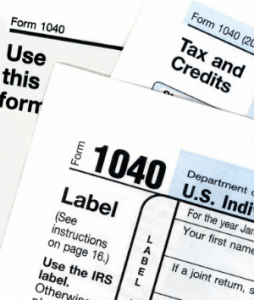Benefits Buzz
ACA Impact on Tax Filing
Posted on February 6th, 2015

The Affordable Care Act (ACA) requires most people in the country to have health insurance coverage or pay a penalty. In addition, advanced premium tax credits were provided to millions of people who enrolled in coverage through a state-run or federally-facilitated Exchange. The government will be assessing penalties and reconciling subsidy payments on federal income tax returns effective for 2014.
Those individuals that underestimated their income will be subject to paying back all or some of those subsidies. Likewise, those individuals that overestimated their income will have the balance due paid to them. For most people, very little will change as it relates to the tax filing process.
If you had health insurance coverage throughout the year from an employer, a government program such as Medicare or Medicaid, or you purchased an individual health plan off-Exchange, there will simply be a box to check off indicating this information on Form 1040, and more specifically, line 61 on the form is where this information is captured. There are no supporting documents or proof of coverage that needs to be submitted with the tax return.
If you were a person that applied for coverage through a state or federal Exchange and received an advanced premium tax credit, you are going to receive a new form in the mail sent by the Exchange to assist with your tax filing. Form 1095-A will provide the necessary information to help with the completion of Form 8962, which is a new tax form that must be completed by anyone who received an advanced premium tax credit. This is the form that will be used to determine if you received too much or too little of a subsidy.
If you enrolled in coverage through a state or federal Exchange and didn’t receive an advanced premium tax credit, you will still need take the information from your Form 1095-A to complete Form 8962, and check off line 61 on Form 1040. Depending on your actual income for the year you may be eligible for a premium tax credit at the time you file your tax return.
If you didn’t have health insurance coverage then you can claim an exemption from the Individual Mandate, if applicable. Most exemption requests can be claimed on your tax return, but some must be granted by an Exchange, such as those claiming a religious exemption. If you are claiming an exemption, you must complete Form 8965 when you submit your tax return to avoid paying a penalty.
If an exemption does not apply, then a penalty of $95 per adult and $47.50 per child under age 18 (up to $285), or 1% of household income, whichever is greater, will apply.
Subscribe to this blog to stay updated on health care reform with Flexible Benefit Service LLC (Flex).
The materials contained within this communication are provided for informational purposes only and do not constitute legal or tax advice.

